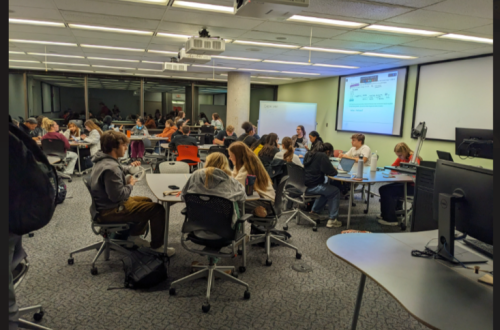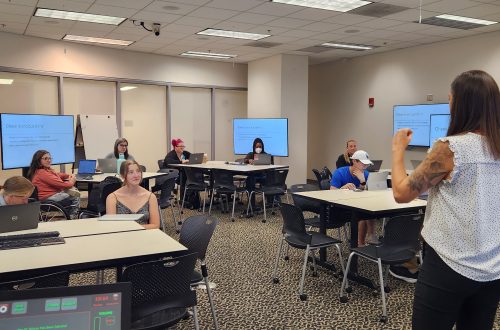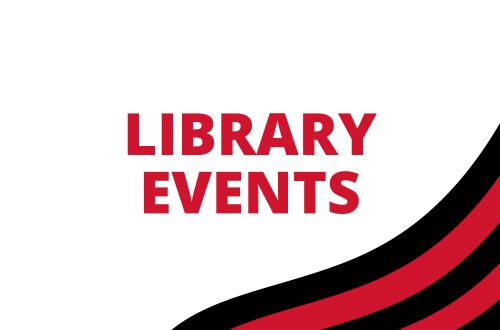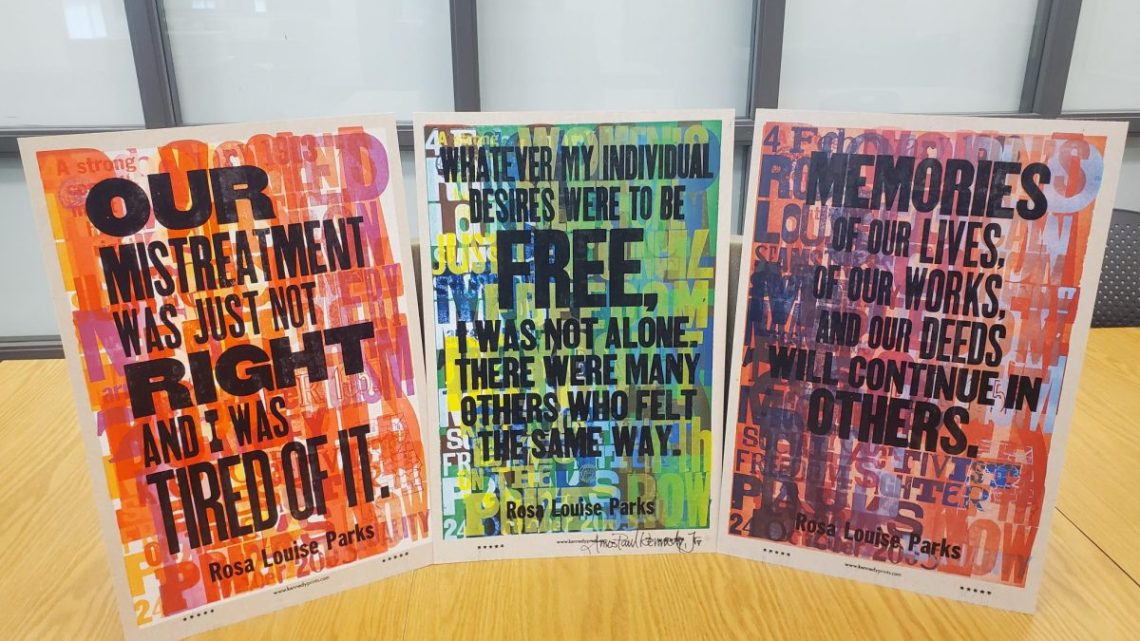
Social activist with a press
Reprinted from a Sept. 30 LiBlog post by Chris Harter, university archivist and head of the Archives & Rare Books Library

“I use letterpress printing, but I use it to disrupt the segregated realms of fine printing and artists’ books.”
–excerpt from “My Manifesto” in the new book Amos Paul Kennedy, Jr.: Citizen Printer
To read Amos Kennedy’s manifesto is to glimpse into the passion and love that Kennedy holds for letterpress printing and his sincere belief in the power of the printing press. Kennedy is one of the leading practitioners of letterpress printing today, known mainly for his bold stylistic technique that foregrounds powerful messages against a colorful backdrop. He prides himself on being a “disturber of the peace” and a member of the “School of Bad Printing,” both of which point to the strong social activism presented in his work as well as the humor.
Born in Lafayette, Louisiana, Kennedy grew to study mathematics and began a career as a computer programmer, but his love of calligraphy and books led him to eventually leave the corporate world for the life of a printer and designer. He studied book arts at the University of Wisconsin-Madison, but before that a visit to a printing demonstration at Colonial Williamsburg led Kennedy to purchase a Vandercook printing press and four cabinets of type, which he installed in his basement. Thus, a printer was born and, today, Kennedy operates a letterpress shop called Kennedy Prints! in Detroit, Michigan.
Kennedy’s work is preserved in numerous libraries, archives and museums, and the University of Cincinnati’s Archives and Rare Books (ARB) Library is pleased to join that community. ARB recently acquired two sets of Kennedy’s work. The first is the poster series “Quotations from Rosa Louise Parks,” which includes 12 posters that feature quotations from the civil rights activist over various typographic layers. In a 2023 interview, Kennedy described his technique this way:
“When you look at something like the Rosa Parks portfolio, you’ll see that there’s one layer that has dates that are significant to her life. Then there’s another layer that has places that are significant to her life. This continues for about four layers, because one of the things I like to do is envision people having that aha moment—when that poster has been on the wall for a considerable amount of time, and they see it every day, but suddenly, they turn their head a certain way, and they say, “Oh, the word Montgomery’s behind there. I never noticed that before.” And that will draw them in to look and study it more.”
(– as printed in Citizen Printer, p. 69)
The second set of Kennedy’s works is comprised of 134 church fans bearing the names of individuals killed will working for civil rights in the United States from 1946 to 1968. The fans are accompanied by a series of standard road maps on which Kennedy has printed the number of individuals murdered in various states. The portfolio takes a simple object with strong ties to the Black church and creates a haunting, repetitive visual narrative. As Kelly Walters has written in Citizen Printer, Kennedy’s “use of the fan asks us to contemplate how the rites of funeral memorialization can serve as a tool for historical remembrance as well.”
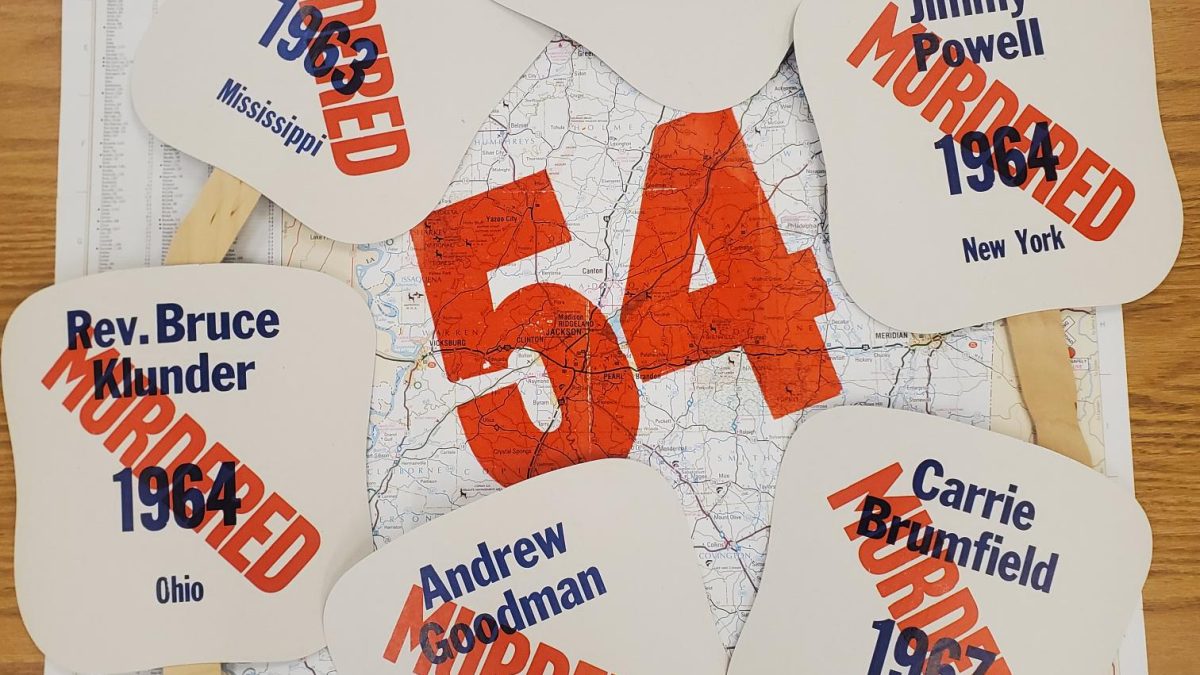
As part of his manifesto, Kenney states: “Throughout history, the printer has had to choose to either resist or assist in the marginalization of knowledge. I made the choice: I resist.” There is no better summary of the work that Amos Kennedy has produced over the years, and ARB is proud to now help preserve his work as we look to diversify examples of printing and the book arts in our collections. We are working to create an online finding aid for the Amos Paul Kennedy, Jr. Collection at ARB and hope to add to the collection in the future. Those who are interested in viewing materials from this collection can email ARB at archives@ucmail.uc.edu to schedule a research appointment. To learn more about Kennedy’s life and career, we recommend the excellent documentary Proceed and Be Bold!
